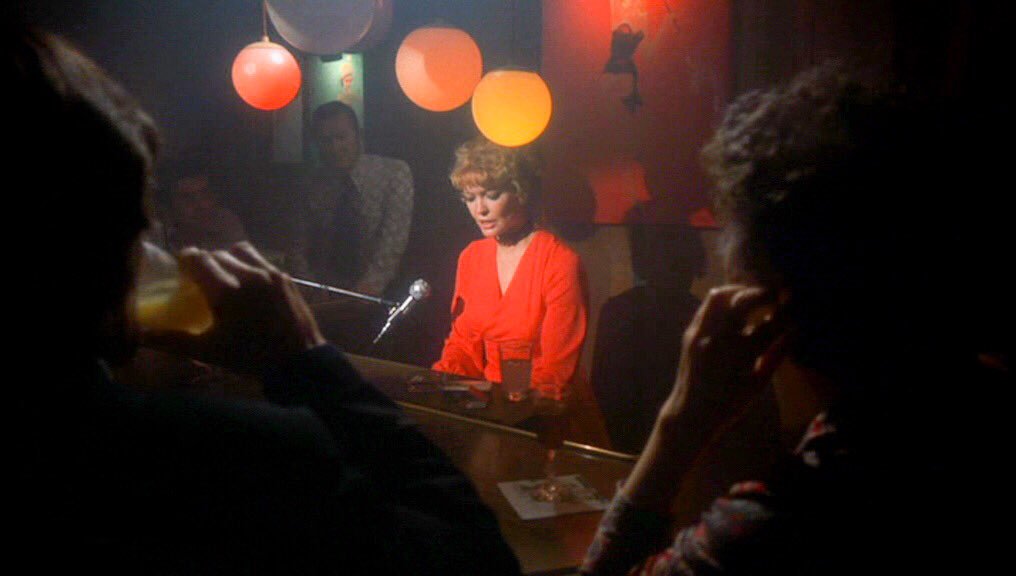Soundtracking: Alice Doesn't Live Here Anymore
 Wednesday, October 23, 2019 at 12:00PM
Wednesday, October 23, 2019 at 12:00PM by Chris Feil
Martin Scorsese is perhaps one of the more discussed directors in terms of movie music - how could he not be on his many music documentaries alone? His filmography is one accented with rock and roll iconography, most recognizable for its big band era details and Rolling Stones fanaticism. But while the recurring “Gimme Shelter” may be the most obviously iconic example of Scorsese’s musical insights, his ability to unleash character detail through song has a mightier narrative impact in some more unexpected places. Like Alice Doesn’t Live Here Anymore, a film where its heroine and its music are caught between tradition and the turbulent now.

The film exists somewhere somewhere between Sirkian melodrama and the emergent raw American filmmaking of the moment, similar to the dichotomy between past and present he would also musically examine in New York New York. Ellen Burstyn geniusly embodies Alice, a single mother trying to raise her son and foster her own worn dreams of being a singer, burdened further by all the societal expectations of the kind of mother she’s supposed to be. Scorsese harshly juxtaposes more standard balladry when Alice performs with a loud rock and roll elsewhere. Attitudes and acceptability towards what women and mothers could be was radically changing, and the film sounds like two worldviews at odds.
The film opens with in the romantic fashion of a now bygone era, the adolescent Alice arriving and singing along to “You’ll Never Know” - a romantic ballad whose depths she cannot understand no matter how it’s been sold to her like doctrine. Cut to present day and we’re jarred by a blast of Mott the Hoople, an intrusion of her preteen son, immediately casting motherhood as an inversion of the idyllic future she had been promised. Alice’s past is intentionally stagey, and this is all too real.
But there is some peace for Alice in the more casual musical standards she favors. After the death of her husband, she solemnly sings “Where or When” at her piano. It’s less for him than it is for a former part of herself she struggles to recapture.
Alice emerges determined to use her one passion to at least make them some money, moving towns and tries hustling her way into a singing gig. As an impromptu audition, she returns to “Where or When”, but then the song shifts into an unexpectedly medley. Here it signifies the next chapter for Alice obviously, as she lands the job, but it also unlocks something in her as well. Scorsese’s eye becomes more florid and glossy, the kind of loving gaze more aligned with the film’s melodrama influences. But it’s not that she’s reconnecting with the spirit of a past era, she’s igniting the part of herself usually stifled.
Alice finds Scorsese musically in dialogue between genre expectation and how his protagonist defies it. Later he has Dolly Parton’s “I Will Always Love You” underscoring Alice after she has performed and a very young Harvey Keitel tries to flirt with her. Genre cliches of other films have conditioned the audience yearn for Alice to find romance, the kind of Dolly’s love song. As if sensing it in the air as the song flows throughout the bar like smoke, Alice initially scoffs him off. The song is the tide we are pulled into, what he wants her to submit to, and what she goes against.
Though ultimately she does give in. When she eventually relents, in a process of fragments before completely relenting, Scorsese and Burstyn have painted her as a woman worn down by the pressures around her, but still defined by her resolve.
All Soundtracking installments can be found here!



Reader Comments (8)
So happy this is on netflix. I've watched it about five times lol. I can't say it's one of his best because the masterpieces loom large, but it's so unheralded these days and that's so strange to me. It's not just a Burstyn showcase, but a great movie.
Thanks for the write-up!
A great and underrated movie, endlessly watchable, impeccably cast, and especially fascinating because it came just before Taxi Driver. Ellen is a genius--and one who can sing.
"I don't sing with my ass." Perfect.
I dislike this movie quite a lot, but fair point here. It's use of music may be the best thing about it.
One of my faves. Even the cop-out ending can't spoil it for me. Burstyn is totally amazing, as are Alfred Lutter as her wisecracking son, and Harvey Keitel as the one of the scariest boyfriends ever. Have watched this at least a half-dozen times.
Scorses is a genius with actresses.
Isn't the irony of the story the fact that ALICE CAN'T SING?
Back in the days when the Baftas were truly interesting.
She still stole Gena Rowland's Oscar.